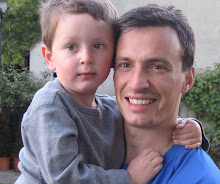Our view from the summit of the Rwenzori mountain range in Western Uganda was breathtaking. A young Ugandan entrepreneur, Vincent Biyara, had been our guide as we struggled to the top. It was from here that he described the development he wanted to see in the Karagutu valley that tumbled before us. It was a vision of enterprise: a community able to utilise its natural assets to establish agricultural and tourist businesses that would create jobs and enable the community to prosper.
There is now widespread recognition in the development community that poverty cannot be defeated without stimulating enterprise and achieving inclusive economic growth. This is especially important when you consider that six out of the top 10 fastest growing economies are in Africa: Uganda, for example, is one of the fastest growing non-oil producing countries in the world. Growth alone is not enough; it must be harnessed to ensure the resulting job creation, development of management capacity and the transfer of technology benefit the poorest. This will require NGOs, businesses and governments to collaborate in new ways to provide greater opportunity for the next generation of entrepreneurs, to ensure that the benefits of growth are not just shared with the poorest but are generated by the poorest.
This won't happen by accident. Starting your own business is difficult in any context; if you are from somewhere like Karagutu, the challenges are multiplied. That is why VSO has developed an innovative partnership with Ben & Jerry's, who source fair trade vanilla for their ice-cream from Western Uganda. Together, we are combining Ben & Jerry's experience of doing business in Uganda with VSO's knowledge of local communities to support fledgling enterprises – from an eco-tourism initiative to a briquette business.
We brought together 15 young entrepreneurs from Europe, who all had experience of setting up a businesses to address a social issue, to work with 15 Ugandan counterparts. Their task was to answer a single question: how can we accelerate the building of enterprises that are commercially viable and also create prosperity for poor communities?
The process highlighted three key obstacles that stand in the way of enterprise flourishing in Uganda and across Africa. These are the challenges of capital, capacity and corruption.
No business can succeed without capital to invest in an idea or take it to scale. In much of Africa, that capital is a very scarce resource. Across the world, only 1% of global capital markets are invested in Africa. That is a scandalous disadvantage to Africa's entrepreneurs. For example, one entrepreneur I met in Uganda described his difficulty in finding an investor to help him purchase new technology that would allow him to fuel a cotton factory through biomass technology instead of using thousands of gallons of diesel per month. The savings on fuel would enable the 30,000 local farmers who supply the factory with cotton to get higher prices for their products. And yet the investment for the technology is not forthcoming.
NGOs have both reach and local knowledge that is often invisible to commercial capital markets. VSO, for example, is working on strengthening livelihoods with 275 local partners in 18 countries. Despite the much-needed emergence of online lending sites such as Kiva and the launching of some innovative social impact funds, NGOs' role in linking opportunity to capital is still nascent and remains a fundamental challenge.
Second is the challenge of capacity. Investment flows to Africa will be inhibited unless there is confidence in the management capacity of those who are entrusted to use that investment to return a dividend. One potential investor told me "I don't invest in ideas; I invest in management teams who can execute on a plan."
It's in the area of people that organisations like VSO and our partners such as Ashoka are ideally placed to play a proactive role. Volunteers with the right expertise and knowledge can act as a catalyst and build the capacity of African entrepreneurs to compete effectively. Our Making Markets Work for the Poor partnership with Accenture over the last 10 years has focused on just that: using its commercial expertise to help analyse value chains and support poor communities to access them better.
Finally, there is the threat of corruption. Studies by economists such as Joel Kurtzman have demonstrated that there is a clear correlation between levels of opacity (the degree of easily discernible and transparent business governing practices) and levels of per capita income. If one falls, the other falls with it. Corruption was cited as a death nail by the Ugandan entrepreneurs we worked with, increasing the cost of vital products and eating into already slim margins. A strong and vibrant civil society is a prerequisite for exposing and confronting corruption, and NGOs' contribution is a vital part of work to create an enabling environment for trade and enterprise.
Working on enterprise-based approaches to development is still new ground for many NGOs. For some, it doesn't sound like the sort of activity NGOs should be engaging in. But what this visit to Uganda made clear to me was that enabling people like Vincent to realise his vision for Karagutu is exactly what we should be doing.
Mark Rowland is the head of fundraising and partnerships for VSO and has spent the last 15 years working for a range of international development agencies




No comments:
Post a Comment